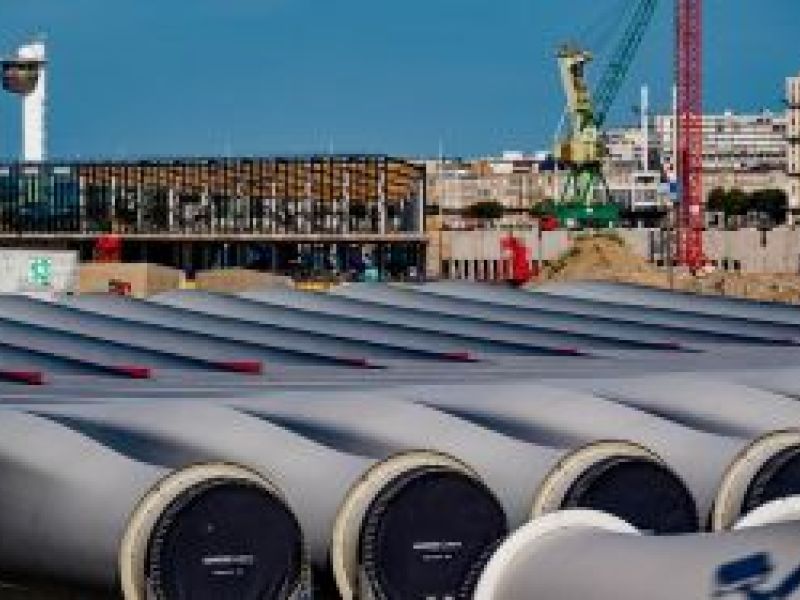As alarmist headlines go, this one from the Telegraph about France crashing the global economy seems pretty hard to beat. Yet the extremely pessimistic view taken by their columnist about France isn’t the only opinion along these lines. From the Guardian to the Wall Street Journal, everyone seems to be chiming in on the state of the French economy, and what it might mean for the world at large.
Now the French government has collapsed after Prime Minister François Bayrou (pictured) lost the confidence vote in parliament it seems that France is in even more disarray. Yet as is often the case, the media love a scare story as the reality is considerably more nuanced, and there remains a clearly signposted way out. The current political situation in France is far from unresolvable, and is likely to impact businesses far less than the current zeitgeist would imply.
The case for La Défense
The picture being painted by certain commentators in France is that the collapse of government will prevent vital economic reforms. These will lead to French banks being shorted, tanking the economy and putting it in a similar level of debt as Greece or Ireland at the height of the Eurozone crisis. This would then snowball into a problem for the EU, and subsequently a problem for the global economy.
It’s not an impossible scenario, but this seems unlikely for a number of reasons, chiefly that the reforms instigated by Macron (which remain in place) have made a substantial difference to the economy already. The suite of tax cuts and business reforms meant that unemployment fell to 7%, and growth picked up. Even now, France’s GDP grew by 0.3% last quarter, the same as the UK and more than Germany, which contracted by the same amount.
Related article: Start a Business in France in 8 Steps
The factors which have jeopardised these reforms and impacted the economy are the same that have impacted most economies: Covid-19, the war in Ukraine, and U.S. tariffs. The ‘Gilet jaune’ protests also saw the country take a huge economic hit, and hit business confidence, costing France an estimated €17 billion—almost half as much as the pandemic. With most of these issues abating, the reforms should help the country recover, and rebut some of these questions.
Bayrou the day
It’s certainly true that the political climate in France has been turbulent of late. We’ve already written about the obstacles faced by President Macron after his government collapsed at the end of last year. The situation since then hasn’t been much rosier for him or the newly former Prime Minister François Bayrou, who had been open about the need for serious economic reforms to get France back on track, and reduce the country’s debt.
The problem is that the proposals to do this are a continuation of already unpopular policies by Macron. As well as cutting two public holidays from the calendar—never a good look in France—Bayrou had also teased further cuts to France’s welfare state, and pleaded the case for increased military spending. All of this follows on the back of years of tax cuts by Macron, who has followed a programme of incentivising investors through lower wealth, housing and capital gains taxes.
The combination of cutting national holidays and slimming down the welfare state has angered both sides of the political spectrum. The National Rally have called the potential loss of the holidays (which includes the celebration of the surrender of Nazi Germany) an affront to French history, while critics on the left have decried the refusal to consider raising taxes on the wealthiest in society. All of this is leading towards another potential no confidence vote, which could see the dissolution of yet another government.
The French economic outlook
This kind of political purgatory obviously isn’t great for France in general. Businesses would always prefer a stable climate with a positive long-term outlook, and ideally continuity of government. Not all of the ideas any government implements will be positive, but knowing their policy platform and that they will have time to implement their ideas allows businesses to plan for the future, and provides a level of economic certainty.
Related article: Five expat ideas to find success in France
It has to be said that this kind of turbulence isn’t that unusual for France. This is the third government since the start of 2024, with the two previous ones having been dissolved following similar economic wrangling. The only certain thing about President Macron’s current economic programme is that the opposing parties will oppose it. While the National Rally was unable to gain power at the last election, they and the other side of the political spectrum have prevented many major policies from being implemented.
However, the situation France finds itself in also has to be placed in the context of its European neighbours. An almost identical situation is playing out in Germany, where Chancellor Friedrich Merz has been widely criticised, and Alternative for Germany is gaining ground. In the UK meanwhile, growth is also stagnant, with the Labour administration struggling to implement its reforms and get its message across amongst the noise generated by the Reform party.
How France can fight back
The obvious difference in France is that the country has already shown it is capable of mobilising against the far-right with Macron’s last election victory. It has already eschewed the more extreme side of politics, which might cause even greater economic turbulence. The situation France currently faces—a static environment in which Macron’s old reforms continue to bear some fruit—is far from the worst place to be among Europe’s major economies.
While the current noise around French politics might suggest otherwise, the fundamentals of the French economy remain strong. France is the world’s seventh-largest economy and the second largest in the EU; a global leader in aerospace, pharmaceuticals, and luxury goods; and one of Europe’s most attractive destinations for foreign investment. Its workforce is highly skilled, its infrastructure is modern and efficient, and Paris remains a magnet for startups and investment capital.
Related article: France entrepreneur visa - everything you need to know
France’s economic resilience also shouldn’t be underestimated. As well as the structural reforms mentioned earlier, France continues to benefit from EU membership, and the funding and talent this provides. The country also benefits from a diverse industrial base that includes everything from luxury goods to aerospace manufacturing, and a world-class social safety net that provides stability in times of crisis—factors that make it far less likely to spiral into the type of economic freefall described by some commentators.
Governments across Europe and much of the world are still grappling with post-pandemic fiscal challenges, geopolitical instability, and climate commitments. France is no exception, but this doesn’t make it uniquely fragile. Even if another vote of no confidence does come to pass, France has shown repeatedly that it can weather storms, and emerge stronger from challenging conditions. Far from “crashing the global economy”, France remains a place of opportunity, and its economy has the foundations to withstand the current challenges.







